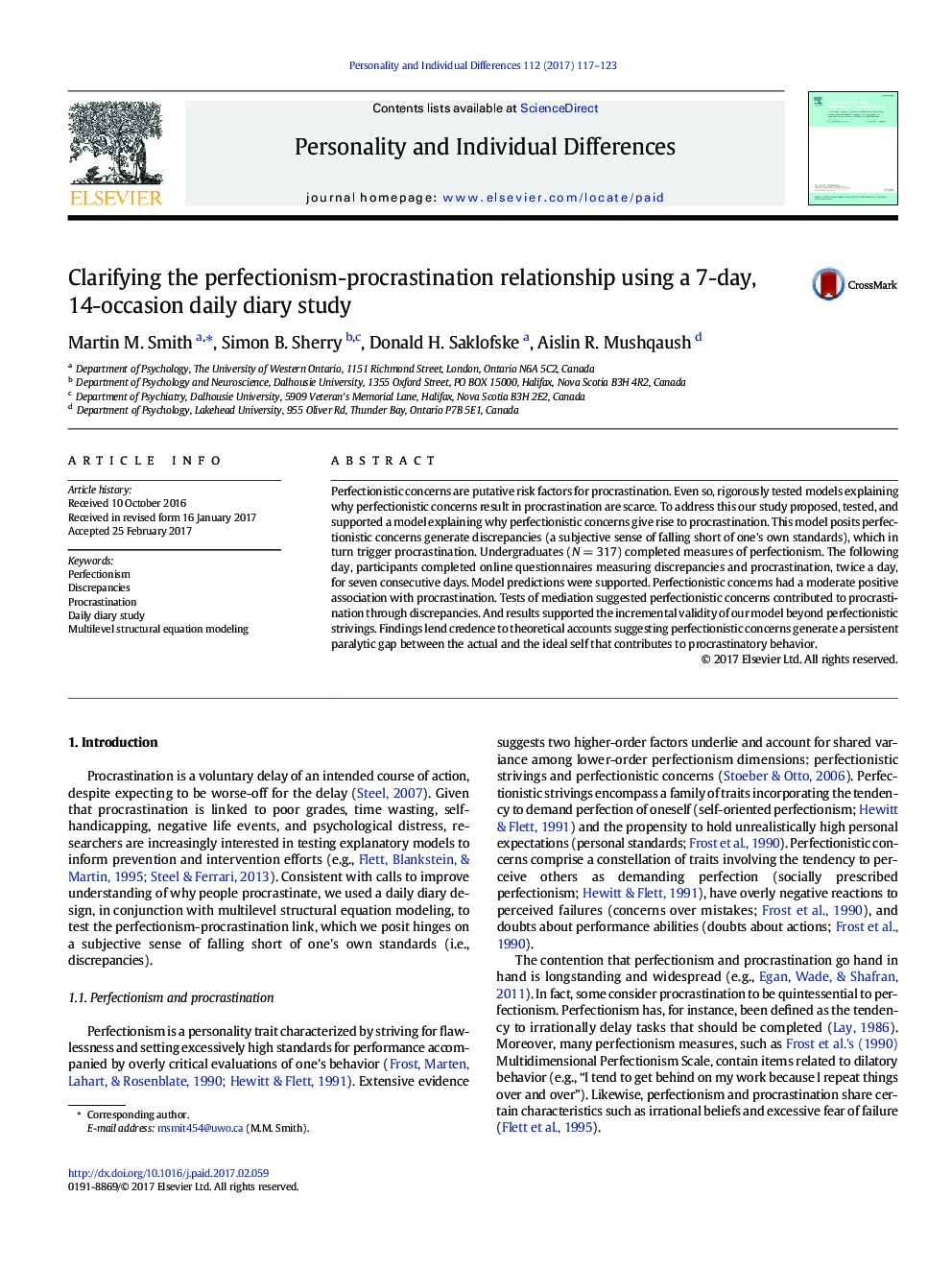| کد مقاله | کد نشریه | سال انتشار | مقاله انگلیسی | نسخه تمام متن |
|---|---|---|---|---|
| 5035733 | 1472006 | 2017 | 7 صفحه PDF | دانلود رایگان |
- Rigorously tested perfectionistic concerns' (PC) link to procrastination.
- Studied 317 undergraduates, over seven days, using a daily diary design.
- Analyzed data using multilevel structural equation modeling.
- PC increased discrepancies, which in turn triggered procrastination.
- PC creates a gap between the actual and the ideal self, leading to procrastination.
Perfectionistic concerns are putative risk factors for procrastination. Even so, rigorously tested models explaining why perfectionistic concerns result in procrastination are scarce. To address this our study proposed, tested, and supported a model explaining why perfectionistic concerns give rise to procrastination. This model posits perfectionistic concerns generate discrepancies (a subjective sense of falling short of one's own standards), which in turn trigger procrastination. Undergraduates (NÂ =Â 317) completed measures of perfectionism. The following day, participants completed online questionnaires measuring discrepancies and procrastination, twice a day, for seven consecutive days. Model predictions were supported. Perfectionistic concerns had a moderate positive association with procrastination. Tests of mediation suggested perfectionistic concerns contributed to procrastination through discrepancies. And results supported the incremental validity of our model beyond perfectionistic strivings. Findings lend credence to theoretical accounts suggesting perfectionistic concerns generate a persistent paralytic gap between the actual and the ideal self that contributes to procrastinatory behavior.
Journal: Personality and Individual Differences - Volume 112, 1 July 2017, Pages 117-123
